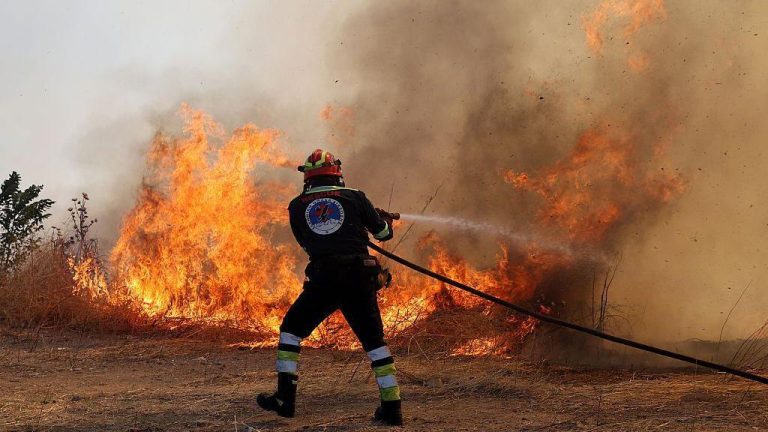Hundreds of firefighters are working tirelessly to combat widespread wildfires tearing through southern Europe, many of which are believed to have been deliberately set and worsened by an intense and prolonged heatwave gripping the region.
On Thursday, the European Union dispatched reinforcements to Greece and Spain as the fires continued to cause destruction. The blazes have claimed the lives of three firefighters, destroyed homes and infrastructure, and burned vast areas of farmland and forest, forcing the evacuation of thousands.
While hot and dry summers are typical in the Mediterranean, scientists warn that climate change is driving more severe wildfires, with high temperatures and strong winds making them increasingly destructive and difficult to contain.
From Portugal and Spain to Albania and Greece, fire crews are facing massive flames threatening both lives and property. According to the European Forest Fire Information System (EFFIS), the Iberian Peninsula alone accounts for nearly half of the EU’s estimated 500,000 hectares of burned land so far this year.
In Greece, over 200 firefighters, supported by 11 aircraft, fought to control a major blaze near the port city of Patras in the western Peloponnese. The extreme heat has created conditions where even a single spark can unleash an uncontrollable inferno, warned Civil Protection and Climate Change Minister Giannis Kefalogiannis.
Authorities have arrested three individuals suspected of deliberately starting fires near Patras. They are expected to face a public prosecutor. In response to the escalating threat, Greece has deployed a record 18,000 firefighters this year.
Spain: Lives Lost and Communities Displaced
Spain, enduring its 11th consecutive day of scorching temperatures—reaching up to 44°C in some regions—has witnessed dozens of wildfires this week. Three people, including volunteer firefighters, have died. The latest victim, identified by local media as 37-year-old Jaime Aparicio, suffered fatal burns while attempting to create firebreaks.
Currently, 11 major fires are threatening populated areas in Spain, prompting the evacuation of over 9,000 residents and disrupting road and rail services.
Portugal and Albania Struggle Against the Flames
In Portugal, nearly 1,000 firefighters are battling a wildfire near the picturesque village of Piodao. A separate fire burning for 11 days in the Vila Real region in the north has finally been brought under control.
Albania is also contending with multiple fire fronts in the Sopot area, between Delvina and Gjirokastra. Soldiers, firefighters, and volunteers, aided by helicopters and an Italian Canadair water bomber, are fighting the blazes that have destroyed dozens of homes and scorched agricultural land.
Prime Minister Edi Rama announced that since June, 137 suspected arsonists have been identified, with several already in custody.
Personal Stories of Loss and Survival
Clirim Conku, a 61-year-old Albanian farmer, lost his vineyards, olive trees, and livestock, but was grateful that he and his loyal dog survived. “This napkin saved my life,” he said, holding a sweat-soaked cloth he used to breathe through the smoke.
Others shared heartbreak and frustration. Dimitris Daskas, a 57-year-old restaurant owner near Patras, broke his arm trying to protect his property and was left without water or electricity as the flames closed in. "My wife was calling emergency services, telling them we were on fire—they didn’t even answer," he said.
As wildfires continue to rage across the region, the emotional and environmental toll mounts, underscoring the urgent need for coordinated action in the face of a worsening climate crisis.
Leave a reaction



